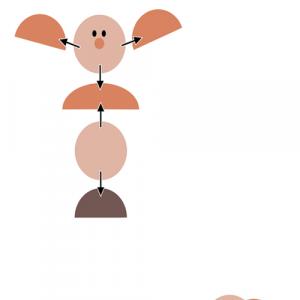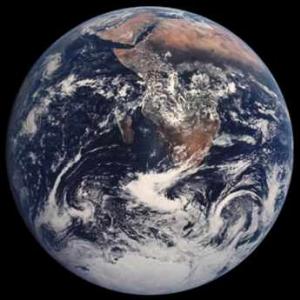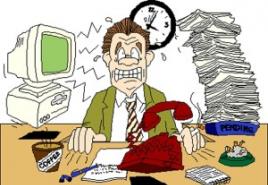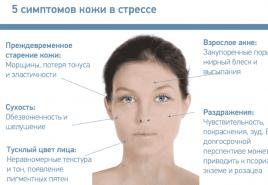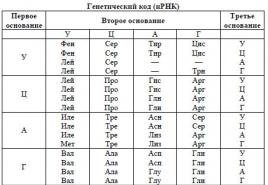Was Yevtushenko a Nobel Prize Laureate. Evgeny Evtushenko
I studied the data from open sources and collected a biography of the legendary writer, poet, publicist and actor Yevgeny Yevtushenko, who died on April 1.
The world famous poet Yevgeny Yevtushenko was born in Siberia in 1932. The head of the family, Alexander Rudolfovich, was half German, half Baltic, and bore the name Gannus. Mother Zinaida Ermolaevna Yevtushenko - poet, geologist, Honored Worker of Culture of the RSFSR. After the birth of her son, she deliberately changed her husband's surname to her in her girlhood in order to avoid problems with documents during the evacuation during the Great Patriotic War.
Subsequently, the poet's parents divorced, but the father continued to educate his son. He took Yevtushenko to poetry evening at Moscow State University. They went to the evenings of Anna Akhmatova, Boris Pasternak, Mikhail Svetlov, Alexander Twardovsky, Pavel Antokolsky.
In 1951, Yevtushenko entered the Gorky Literary Institute and was soon expelled for not attending lectures. The poet received a diploma of higher education only in 2001.
Creation
From his youth, Evgeni Yevtushenko began to compose poetry. In 1949, a poem by Yevtushenko was first published in one of the issues of the Soviet Sport newspaper.
The first book that Yevgeny Yevtushenko wrote, “Scouts of the Future,” immediately after its release, the young poet publishes poems Wagon and Before the Meeting. This marked the beginning of his future serious creative work. In 1952, he became a member of the Union of Writers of the USSR, being the youngest in this community. In the same year, the first collection of Scouts of the Future was published, consisting of praising poems. Future fame is brought to him by collections of poems, which he writes further: "The Third Snow", "Highway of Enthusiasts", "Promise", "Poems of different years", "Apple".
Many critics did not understand and did not accept the poet's works. Among the scandalous verses were: “Stalin’s Heirs”, “Pravda”, “Bratsk Hydroelectric Power Station”, “Ballad on poaching”, “Hand wave”, “Morning people”, “Father's hearing” and not only.
The young poet read his poems along with such legends as Bulat Okudzhava, Bella Akhmadulina, Robert Rozhdestvensky and many others.
Despite the fact that poetry gained recognition in society, Yevtushenko was not limited only to their writing. The first work in prose - "The Fourth Meshchanskaya" - was published in 1959 in the journal "Youth". Yevtushenko released his first novel, Berry Plants, in 1982.
Yevtushenko is the nominee for the 1963 Nobel Prize in Literature.
Yevtushenko is the director and screenwriter of the military drama "Kindergarten" and the melodrama "The Funeral of Stalin."
Poems of the poet inspired many musicians to create songs and musical ghosts. For example, on the basis of Yevtushenko’s poem “Babi Yar”, composer Dmitry Shostakovich created the famous “Symphony No. 13”. This work has earned worldwide recognition: Babi Yar is known in seventy-two languages \u200b\u200bof the world. Eugene began to collaborate with composites back in the 1960s, working with celebrities such as Eugene Krylatsky, Eduard Kolmanovsky and Yuri Saulsky.
In 1991, having signed a contract with an American university in Tulsa, Oklahoma, he left with his family to teach in the USA, where he lived permanently, sometimes coming to Russia.
The editors managed to contact the University of Tulsa and get unique archival photos of Yevgeny Yevtushenko.
During his creative life, more than one hundred and thirty books have been published, and his works are read in 70 languages \u200b\u200bof the world.
Evgeny Yevtushenko managed to prove himself in the cinema. He wrote the script for the film "I Am Cuba," which was released in 1964 in collaboration with Enrique Pineda Barnet. In Savva Kulish's painting "Rise", the poet played the main role of Konstantin Tsiolkovsky.
Personal life
The poet fell in love often. In all his life, Evgeny Yevtushenko had four wives. With his first wife - the famous poetess Bella Akhmadulina - Yevtushenko in his youth was in a creative union, which grew into family ties. It was the first love of the poet, Akhmadulina at that time was barely eighteen. The marriage was destined to last exactly three years.
In 1961, Evgeny Yevtushenko married a second time. His wife was the former companion of his friend Mikhail Lukonin - Galina Semenovna Sokol-Lukonina. In 1968, Eugene and Galina adopted a boy named Peter. 10 years later, Yevtushenko falls in love with his Irish fan Jen Butler, who also became his legal wife and gave two sons: Anton and Alexander. In the last marriage, Evgeny Alexandrovich entered in 1987. Maria Vladimirovna Novikova became his wife - at that time a student of a medical school, who also gave him two sons: Eugene and Dmitry. Maria was with her husband until the last days of the poet's life.
Awards
For his creative work, the poet Yevgeny Yevtushenko received dozens of awards and honors.
During his lifetime, the poet was an honorary member of the American Academy of Arts, the Academy of Fine Arts in Malaga (Spain), a member of the European Academy of Arts and Sciences, an honorary professor at Honoris Causa, New York University and Queen's College, Queens, and a professor at the University of Pittsburgh and at the University of Santa Domingo. Among the poet’s most outstanding awards are the Badge of Honor, the Order of the Red Banner of Labor, the Order of Friendship of Peoples, the medal Defender of Free Russia, an honorary member of the Russian Academy of Arts and many others.
For the poem "Babi Yar" in 1963, the poet became a candidate for the Nobel Prize in literature. Yevtushenko was a laureate of the Taffy Academy of Russian Television Academy Award for the best educational program “A Poet in Russia is More Than a Poet” in 1998, as well as the Walt Whitman Prize (USA). In 1978, he named the small planet of the Solar System, which he discovered Crimean Astrophysical Observatory. In 1995, in Italy, Yevtushenko’s novel “Don't Die Before Death” was recognized as the best foreign novel.
In November 2002, the poet was awarded the international prize Aquila (Italy) for his literary achievements, and in December of that year he was awarded the Lumieres gold medal for his outstanding contribution to the culture of the twentieth century and the popularization of Russian cinema.
Death of Evgeny Yevtushenko
March 31, it was reported that Yevtushenko was hospitalized in the United States, his condition is doctors as serious.
On April 1, it became known that the famous Soviet and Russian poet Yevgeny Yevtushenko, on July 18, he would have turned 85 years old.
Contemporaries Yevgeny Yevtushenko Olzhas Suleimenov and Murat Auezov with a correspondent with their memories of him.
In recent years, Evgeny Yevtushenko has evaded a direct answer to the question of which of the Russian poets it is time to present the Nobel Prize. Apparently, the answer was obvious to him. And such confidence is not unfounded.
Text: Michael Wiesel / Year of Literature, for RBTH.com
Collage: Year of Literature.RF
1.
Yevtushenko is one of the few poets in any literature whose lines entered the flesh of a living language and turned into proverbs. “A poet in Russia is more than a poet”; “Do the Russians want war”; “There are no monuments over Babi Yar”; "This is what happens to me, my old friend does not go to me." The native Russian speakers pronounce these phrases without thinking where they came from, but they have a specific author:.
2.
At the same time, Yevtushenko is well known outside the borders of Russia - which is also not so often the case with representatives of a great language (by the number of people for which it is native), but a language that is not widely spread in the world. Since the sixties, Yevtushenko traveled a lot around the world, speaking in huge halls (in one of them
saw him and immediately suggested the role of Christ in his "Gospel of Matthew"
He was so struck by how the blue-eyed Siberian guy kept the audience). And since 1991, personal and professional circumstances have developed so that he spent almost the entire academic year, from September to May, in the USA, at Tulsa University. What also contributed to his recognition not only in the artistic, but also in the academic environment - from which the "applications" for the Nobel Prize come.
3.
Despite the jealousy inevitable in the artistic environment, even the most violent lovers of poetry and personality Yevtushenko admitted: yes, he really passionately loves, knows by heart a huge number of poems (not only his friends, but also people who are personally and creatively close to him) - and tirelessly all life is engaged in its dissemination and even propaganda. It is enough to name the monumental anthology compiled by Yevtushenko “Stanzas of the Century” (1995), in which the verses of many forbidden and therefore forgotten emigrants to the USSR were returned for the first time. And more recently, Evgeni Aleksandrovich finished work on an even more monumental five-volume collection, “Ten Centuries of Russian Poetry” (2013).
4.
The Nobel Prize in literature is given not for any particular work (although sometimes it is implied, as in the case of c), but " on the basis of achievements and achievements ”. The merits of Yevtushenko are undeniable: long before he returned poetry lovers to the stadiums, showing that the composition and, most importantly, the comprehension of poetry is accessible not only to the highly educated inhabitants of campuses and small artistic cafes, but also to the masses - no matter how ironic the representatives of the same educated strata.
5.
At the same time, Yevtushenko is not a loner, not an accidental fluctuation, but a representative of a vast and fruitful literary trend, like (the Silver Age) or V.S. Naipol (postcolonial literature).
Two high-profile deaths occurred last week.
And each meant the end of an era.
And both happened in America - which, in my opinion, is also a landmark event in itself.
Older people remember, probably, the issue of “Spark”, the “flagship magazine of perestroika,” published in February 1987, where on the cover were depicted - against the backdrop of the winter Peredelkino landscape, then in fashionable furry hats - four poets whose names began to rattle during the years of Khrushchev’s “Thaws”, From right to left - Robert Rozhdestvensky, Bulat Okudzhava, Andrey Voznesensky, Evgeny Yevtushenko.
In the same order they died and left. First Rozhdestvensky, then Okudzhava, then Ascension, and last, on Saturday, April 1, Yevtushenko died - in the distant Tulsa, Oklahoma, where he taught at a local university - by the way, one of the best in America, despite the seeming provinciality .
The death of Yevtushenko reminded that his brilliant generation had practically dried up. Those others who were not in that picture, but who, together with four poetic musketeers who gathered entire stadiums for their performances, were still alive, constituted the elite of Russian culture of the late twentieth century.
First of all, I mean the Nobel laureate in literature, Joseph Brodsky, who, in my opinion, in contemporary Russian poetry is equal to Pushkin in the Russian classics of the 19th century. I mean Vasily Aksenov, Bella Akhmadulina, Sergey Dovlatov, Vladimir Maksimov, Alexander Galich, Peter Weil - and more broadly, then the Unknown, and Tarkovsky, and Lyubimov, and many, many others.
Who is behind them? Zakhar Prilepin? Sergey Minaev? Vladimir Solovyov? Or, perhaps, Vladislav Surkov, they say, publishing his literary exercises under the pseudonym Natan Dubovitsky? Or Revenko with Skabeeva, Popov and Semin?
Almost the most prominent writers and artists of the Soviet socialist homeland once put out of the door. This is our national tradition, such a “spiritual bond”. The best, most talented are supposed to spread rot. To thinking, independent, out of the ordinary, outstanding to his sons, the homeland should not be treated as a loving mother, but as an evil stepmother.
Yevtushenko, by the way, was an exception here - the authorities forgave him a lot, but in the end he chose to live in the American campus for the last quarter of a century of his life - perhaps the most comfortable, calm and happy.
And two days before Yevtushenko’s death in California, in Palo Alto, the city where Stanford University and the headquarters of almost all the most advanced high-tech companies in the world are located on a grand scale: Apple, Facebook, Hewlett-Packard, Tesla Motors, died brilliant theoretical physicist, Nobel laureate, student of the great Landau, academician Alexei Abrikosov, who also moved from Russia to the United States almost a quarter century ago and in 2003 received the Nobel Prize in physics, already being an American scientist.
In an interview with Radio Liberty on the occasion of the Nobel Prize, Abrikosov then said a piercingly bitter thing:
“In Russia, when I was there, I had suffered enough. And on this occasion, I am proud that this award is considered for America. " He thought and repeated: "I am proud of this."
What do you want? Stepsons pay evil stepmother handsomely.
The death of 88-year-old academician Abrikosov in the United States is a sign that the generation of outstanding scientists who inherited the great ones - Yoffe, Semenov, Kapitsa, Landau, Tamm, Zel'dovich, Sakharov, Khariton, is leaving. And behind them - also nobody. All the best - a long time in the West. The Russian Academy is destroyed by the ambitions of people from Putin’s inner circle. Fundamental science is bent.
The next Russian winners of the 2010 Nobel Prize in Physics are also born, raised, educated, and took their first steps in science in the USSR and in Russia, Sir Andrei Geim and Sir Konstantin Novoselov, for scientific merits elevated to the knighthood by the British Queen Elizabeth II, long live in Manchester and work at the university there.
As the half-forgotten poet Herman Plisetsky once wrote now, alas:
We handed out our glory for free:
Apparently, she’s not in our barns,
As you can see, we have no end to it -
As if they were too rich in talents!
How many people who have already glorified or could still glorify our country now live far beyond its borders? Scientists, writers, musicians, businessmen, lawyers, doctors, artists, filmmakers, journalists, athletes. Just representatives of an educated and active middle class. The bill goes to millions.
This is called a brain drain. Its result in any country is the degradation of science, culture, education, the country's ever-growing lag in all areas, the archaization of intellectual, social political life.
The reason for the brain drain is not only the lack of adequate funding for science, culture, and education. It is also a lack of freedom. Neither science, nor culture, nor education can long exist in conditions of unfreedom. This was understood even by Stalin and Beria, who were ready to forgive the Soviet scientists who worked on the creation of atomic weapons, any freethinking - if only there was a result. It is no accident that the creator of the hydrogen bomb, Academician Andrei Dmitrievich Sakharov, later turned into perhaps the most outstanding fighter for freedom and democracy in the USSR.
As for freedom, another great Russian man who left Russia to remain a free man, writer Vladimir Nabokov once wrote:
“Such freedom as we know did not know, maybe not a single nation. In that special Russia that surrounds us invisibly, lives and holds us, impregnates the soul, colors dreams, there is no law except the law of love for it, and there is no power other than our own conscience. We can say everything about it, write everything, we have nothing to hide, and no censorship poses a barrier to us, we are free citizens of our dreams. Our scattered state, our wandering power with this freedom is strong, and someday we will be grateful to blind Clio for giving us the opportunity to taste this freedom and in exile piercingly understand and feel our native country
Let us not blame the exile. We will repeat these days the words of that ancient warrior about whom Plutarch writes: “At night, in the deserted fields, far from Rome, I spread the tent, and my tent was Rome to me.”
90 years have passed, but how relevant it sounds!
Evgeny Yevtushenko nominated for the Nobel Prize in literature. The initiator was the World Congress of Russian-Speaking Jews. The author of Babi Yar may become the laureate of one of the most prestigious international awards along with Pasternak, Bunin, Solzhenitsyn, Brodsky or Sholokhov. The decision to nominate the poet Yevgeny Yevtushenko, now in Israel, for the 2008 Nobel Prize in Literature was made in the Israeli parliament at a meeting of the commission on aliyah, absorption and the diaspora. Almost all Russian-speaking Knesset deputies came to meet with the poet. “It may sound a little pathetic, but for me, Evgeny Yevtushenko is not just an outstanding poet, prose writer, screenwriter, director, actor, photographer, public figure,” said Knesset deputy Mikhail Nudelman. “For me, he’s a kind of spiritual tuning fork of the time, that the epoch in which we were born, grew up and took place. I deliberately do not speak of him as a Russian or Soviet poet. His work is beyond borders. Evgeny Yevtushenko can rightly be called a citizen of the world, because he writes about the most painful points of the whole world, not just Russia "And it is no accident that his poems were translated into 72 languages." Professor Nudelman expressed the hope that one of the Israeli public organizations will nominate the poet for the Nobel Prize: "It is a matter of honor for Jewish public organizations in the world to achieve just such an assessment of his contribution to the treasury of world literature." The World Congress of Russian-speaking Jews responded to the offer, Jewish.ru reports. “Our congress unites Jews living in 27 countries of the world,” said the chairman of the Israeli branch of the organization, Yuli Kosharovsky, referring to Yevtushenko. “Your work warms our hearts. Given your tremendous services to world literature, artistic excellence, as well as a courageous position which you have been demonstrating for half a century, we have decided to nominate you for the 2008 Nobel Prize in Literature. " Knesset Speaker Dahlia Itzik, in turn, called this initiative very important and timely. Nobel Prizes are one of the most prestigious international awards. They are awarded annually for outstanding scientific research, revolutionary inventions or a major contribution to the culture or development of society. According to the will of Alfred Nobel, prizes are awarded in five areas: physiology and medicine, literature, physics, chemistry and promoting peace in the world. Since 1969, at the initiative of the Swedish Bank, economic prizes have also been awarded. The amount of the Nobel Prize in each nomination is 10 million Swedish kronor (1.43 million dollars). Russians most often became winners of the Nobel Prize for achievements in the field of physics (I. Tamm, P. Cherenkov, I. Frank, L. Landau, N. Basov, A. Prokhorov, P. Kapitsa, J. Alferov, A. Abrikosov, V Ginzburg) and literature (I. Bunin, B. Pasternak, M. Sholokhov, A. Solzhenitsyn, I. Brodsky). The Nobel laureates in chemistry were N. Semenov, in physiology and medicine - I. Pavlov, I. Mechnikov, in economics - L. Kantorovich. A.Sakharov and M.Gorbachev were awarded the Nobel Peace Prize. Recall, the winner of the 2007 Nobel Prize in Literature was the British 88-year-old writer Doris Lessing. Evgeny Yevtushenko began to print in 1949. In 1952, his first collection of poems, The Scouts of the Coming, was released. In 1962 he participated in the Soviet delegation at the 7th World Youth Festival in Helsinki. A sensation was his poems "The Heirs of Stalin" and "Babi Yar." Among the most famous poems are “The Bratsk Hydroelectric Power Station” (1965), “Under the Skin of the Statue of Liberty” (1970), poetry collections “Highway of Enthusiasts” (1956), “Intimate Lyrics” (1973), novels “Berry Places” (1981 ) and "Do not die before death" (1994). Yevtushenko directed two films according to his own scripts: "Kindergarten" in 1984 and "Stalin's Funeral" in 1991. Dmitry Shostakovich wrote The 13th Symphony (Babi Yar) and the vocal-symphonic poem The Execution of Stepan Razin to poetry by the poet.
Yevtushenko Brodsky. In mind, Russia should not nominate Putin for the Nobel Prize, but a significant Russian poet Yevgeny Yevtushenko, while he is still alive. Yevtushenko is no less worthy of the Nobel Prize in literature than the Nobel Prize winner poet Pablo Neruda or Nobel Prize winner writer Ivan Bunin.
Yevtushenko spoke in Russian about ten encyclopedias in Russian. Not everything is the same. But in his best poems, the poet Yevgeny Yevtushenko is the best Russian in Russian poetry of the 20th century. He was able to stylize the text under the essence, under the essential, about which the text itself, under the aesthetics of the event, about which the poem. In fact, Yevtushenko is not only a poet, but also a learned linguist, the same linguist as a scientist, such as the poets Burliuk, Kruchenykh, Mayakovsky, Yesenin, Fatyanov. These are masters of the highest artistic stylization using word and text methods. This is a great science and divine instinct.
Brodsky did not envy Yevtushenko as a poet. Brodsky was envious of his ability to transform in the text and the ability to stylize, no less than the ability to stylize the best artists in Italy in the Renaissance. Yevtushenko is the correctness of the style before killing the poet in himself. The bottom line is, the main thing is that the metaphor rushes off the line, let the poetry die, I repeat the main thing, let the critics hang me for this, in November I will explain the main thing to my people, and people will understand me - that’s what poet Yevgeny Yevtushenko is like a drummer-producer of literature on the mountain for Of Russia.
Yevtushenko is a great Russian poet. Many ingenious formulas from his verses became proverbs, aphorisms, and commonplace cliches of the imagination of a generation from a generation of Russian people, as it was with Pushkin.
Brodsky did not envy Yevtushenko. Brodsky believed that Yevtushenko ditched his talent by mimicking. Brodsky, for well-known reasons, could neither believe nor feel in his life that Russia could be simply and selflessly loved, like something absolutely natural, that it was not necessary to imitate, but it was necessary, on the contrary, to muffle in yourself and your poems so that outsiders and detached people did not accuse the author of excessive pathos, but we do not blame the false artificial pathos of the romantics - the authors of Italian operas and Neapolitan songs.
Brodsky did not envy Yevtushenko, but Osip Mandelstam. With age, Brodsky increasingly departed from simple catchy poetry, what we know and love, like early Brodsky, to multi-vector sketches of what he learned about life, what he felt, what he considered to be his personal wise discoveries about the essence and paradoxes of being .
Brodsky believed that everything he was slandering was first and first. And in this sense, he did not envy Yevtushenko, but to another great Russian poet Osip Mandelstam. He envied that he managed to live in a rich European Russian environment in St. Petersburg until 1917 and in Petrograd in the 1920s, until Stalinism ate and simplified everything, until Petersburg ran out of steam in the simplified Leningrad culture, their feelings and depth of thought in Leningrad.
Creative death, in fact the extinction of St. Petersburg, is a separate issue, a separate tragedy of the entire Russian and Soviet civilization, which the USSR and Russia did not like and do not like to talk about as a secret indelible sin on their conscience. It’s not only Stalin’s or Brezhnev’s, it’s also today's greatest Putin’s sin - Petersburg is fading away. But this is precisely the tragedy that the poet Joseph Brodsky experienced through all his ruined youth and all his unfulfilled life in its entirety. The feeling of living on an islet of outgoing great European culture, and at the same time living like in a cemetery, made up of vigorous pantomimes for progress, was what killed Brodsky in his youth at home. To live in a fantastically beautiful city - the capital of the former imperial Russia - dreams of Europe in Russia, a city that has been ahead of the country by centuries, and now - to be born under communism, develop already in the 1950s and 60s, depend on some Lenizdat, Leningrad writers organizations, Leningrad newspapers, and the pseudo-gurus of criticism and literature in them — that was Brodsky’s daily torment — the gradual total crushing of Petersburg in symbols and people, the officially invigorating but dying away city of Leningrad.
And in this sense, Joseph Brodsky envied Osip Mandelstam, his language, his metaphors, the fact that he still at least found something essential in all his prime and splendor of human and artistic forms, and in this lived and so juicy, beautifully created, as if on the festival of youth and beauty dined in an amazing restaurant. This feeling of the feast of life and culture with all the dramatic collisions that Osip Mandelstam and Petersburg Osip Mandelstam represented was jealous of this existence and longing for such an existence, for that poetic environment of Joseph Brodsky.
The optimistic culture of the Soviet era, and the best among Yevgeny Yevtushenko directly relates to it, simply prevented Brodsky from hearing genuine notes of real lyrics or tragedy in essence. Brodsky believed that the poet should honestly talk about the complex. Yevtushenko could, in search of a talented generalization, draw his “city at dawn” with all his passion, with hot breath. Not always and not everyone liked it. One of the best lines in the “Master and Margarita” by the writer Mikhail Bulgakov is about “soar and develop for the holiday of May 1 or November 7” and about purchased inspiration, and this is about yourself - as a young man Mikhail Bulgakov, a writer from the family of a priest, earned money in the department, composing and embodying slogans for demonstrations of workers on May 1 and November 7 - on communist holidays to decorate communist columns. Is it after such a left-wing revolutionary work that Mikhail Bulgakov is less worthy of the Nobel Prize in literature for his other literary works, brilliant novels and plays?
Brodsky and Yevtushenko. “They came together, water and stone ...” not in life, but in literature and in disputes about the meaning of life.
A living classic of Russian literature, an excellent Russian and Soviet poet Yevgeny Yevtushenko today is not so young and not as full of health as it might appear on a television screen. He is an old man and every day he can die after his friends, other titans of Russian and Soviet literature of the 20th century. But dead poets and writers are not awarded the Nobel Prizes.
Where is our great honor and enlightener Igor Leonidovich Volgin, where is the democrat in the cube, the texts specialist Marietta Omarovna Chudakova, the Decembrists hymn Yakov Arkadyevich Gordin and the stands of the revolutionary poets Levakov Lev Aleksandrovich Anninsky to nominate the poet Evgeny Aleksandrovich Yevtushenko for the Nobel Prize from Russia, while a good, real Russian poet is still alive? "Everybody dodging, every single one?"
When will this “help no one” in the apparatus of modern Russian literature cease? When will Russia forget about the unwritten rule for nothing and never help anyone and nothing great in their homeland?
From morning till night, small-grassed teletubbies tell and sing to us about great tragedies and great torments, without helping anyone and nothing significant in the matter and fighting for their right not to help anyone, being at the very top and entertaining and oppressing for life.
There is no creative conflict between Brodsky’s poetic heritage and Yevtushenko’s poetic heritage.
Cultural figures, real writers of Russia would do a wonderful job for Russia and the Russian people by nominating Yevgeny Yevtushenko for the Nobel Prize in literature, as long as this living classic is accessible to the generation. Then it will be a shame - and as an example of concrete bastardism in the very literary and literary milieu times in modern Russian history - “And looters stood over the coffin and carry an honor guard”.
Yevtushenko must be nominated for the Nobel Prize in literature. And it will be pride, a successful song, beautiful and on time for all of Russia.
The powerful, essential legacy of Joseph Brodsky will not be reduced from this at all.
Alexander Bogdanov,
St. Petersburg.

